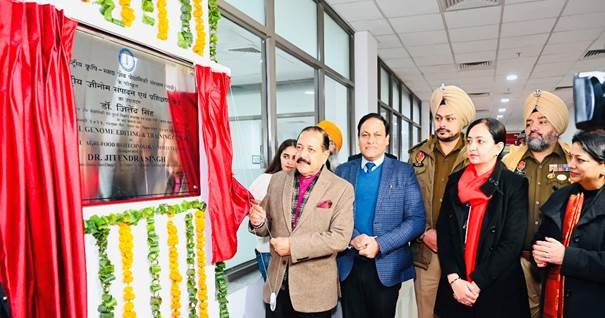Centre launches National Genome Editing & Training Centre in Mohali, Punjab
NGETC will serve as a national platform to cater to the regional needs to adapt different genome editing methods, including CRISPR-Cas mediated genome modification
Dr Jitendra Singh, Union Minister of State (Independent Charge) Science & Technology; Minister of State (Independent Charge) Earth Sciences; MoS PMO, Personnel, Public Grievances, Pensions, Atomic Energy and Space, inaugurated “National Genome Editing & Training Centre” at National Agri-food Biotechnology Institute (NABI) Mohali, Punjab.
National Genome Editing & Training Centre” (NGETC) is a one-roof state-of-the-art facility that will serve as a national platform to cater to the regional needs to adapt different genome editing methods, including CRISPR-Cas mediated genome modification. It will also empower young researchers by providing them with training and guidance about its know-how and application in crops. In the current climatic scenario, improving crops for better nutrition and tolerance to the changing environmental condition is a significant challenge. Genome editing could be a promising technology that Indian research could adapt to offer the desired tailor-made traits in crops. NABI has shown ability and can expand the genome editing tools to vast arrays of crops, including Banana, Rice, Wheat, Tomato, Maize and Millets.
NABI, under the Department of Biotechnology, is a national institute with a mandate focusing on research activities at the interface of Agriculture, Food and nutritional biotechnology. Genome editing is a crucial tool to cause site-specific gene mutations/changes so that important crop traits can be developed. These mutations have the potential to mimic nature-like mutations and could be target specific in the genome. In the current climatic scenario, improving crops for better nutrition and tolerance to the changing environmental condition is a significant challenge. Genome editing could be a promising technology that Indian research could adapt to offer the desired tailor-made traits in crops. NABI has shown the ability to utilise genome editing tools and can expand the genome editing tools to vast arrays of crops, including Banana, rice, wheat, tomato and millet.
NGETC will serve as a national platform


